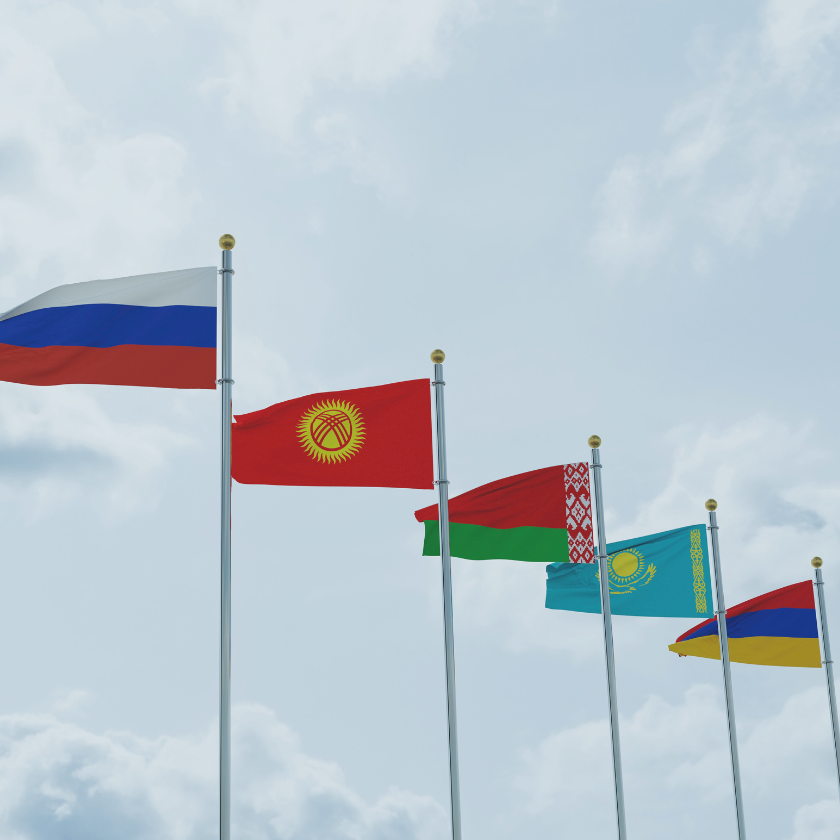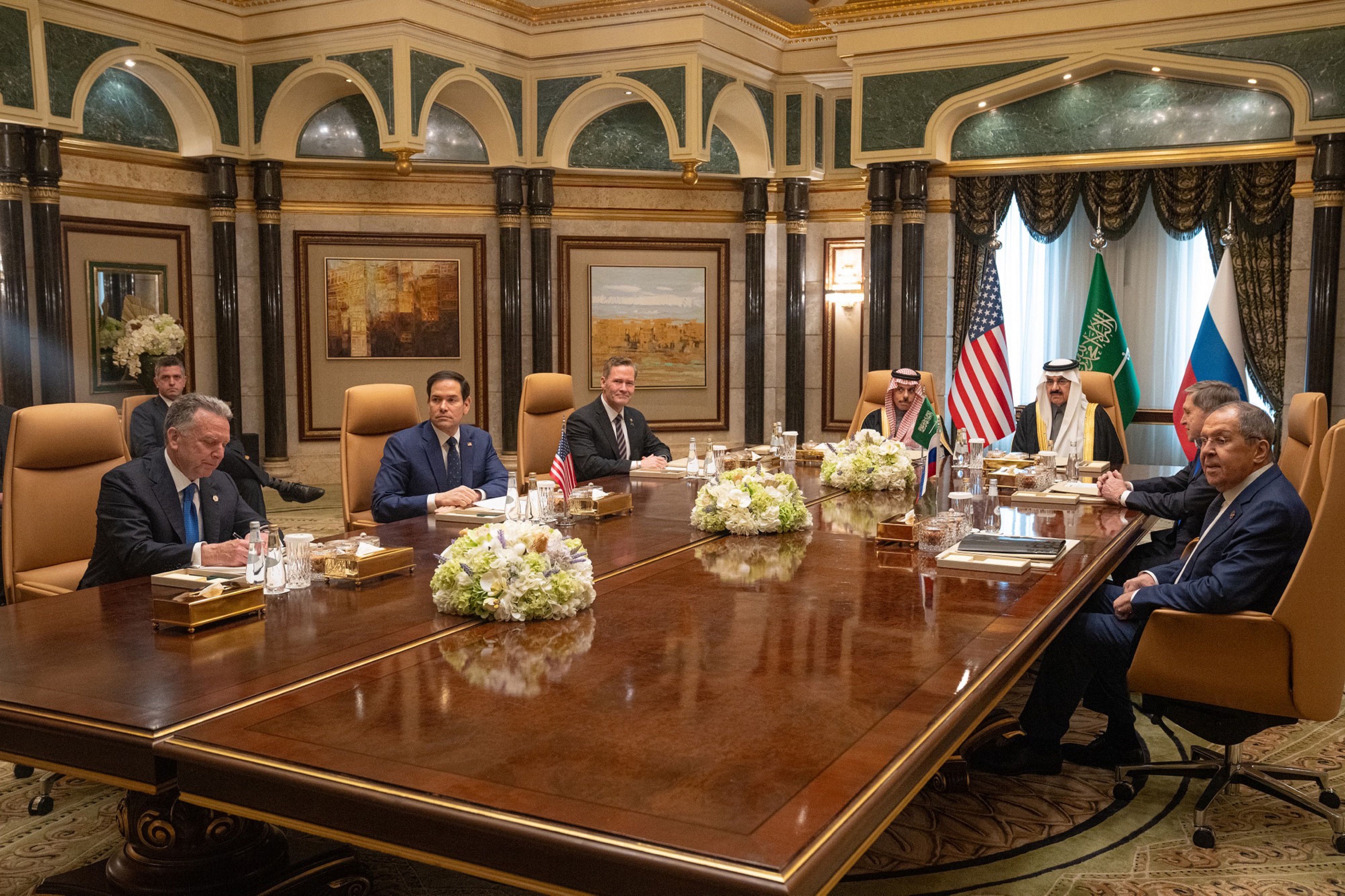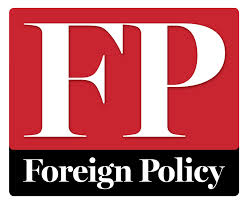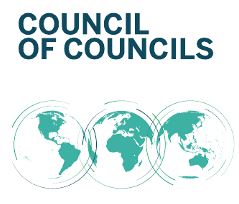Russia-Eurasia
Eurasia is undergoing profound changes. While the Soviet past has left a lasting imprint, Russia and the countries of Eastern Europe, Central Asia and the South Caucasus have their own trajectory.
Related Subjects

How the US under Trump Became a Strategic and Ideological Adversary of Europe

The Europeans' worst security nightmare seems to be coming true: on Tuesday, February 18, 2025, U.S. Secretary of State Marco Rubio and Russian Foreign Minister Sergey Lavrov met in Saudi Arabia to initiate the normalization of relations between their two countries. The meeting also aimed to set up peace negotiations for Ukraine. However, despite having the potential to affect the entire continent, the discussions took place without the Europeans or the Ukrainians being present.

The “One Belt, One Road” – Strategic Implications of a Chinese Infrastructure Network in Eurasia
China’s “One Belt, One Road” project, also known as the “New Silk Road”, aims to create a vast infrastructure network connecting three continents, with China playing the central role.
"Russia New Energy Alliances: Mythology versus Reality", Interview with Vladimir MILOV
"Past year has been marked not only with the Ukrainian crisis and unprecedented tensions in political relations between Russia and the West, but also with somewhat radical change of Moscow’s approach to international energy affairs. Widely promoted new energy partnerships with countries like China and Turkey were supposed to demonstrate that Russia has a choice of alternatives for mass-scale international energy cooperation, as compared to previous domination of European dimension, and if West wishes to cut ties with the Kremlin, Russia has somewhere else to go.
Does Russia really have an option of developing new international energy partnerships comparable in scale and significance to those with Europe as the consumer of energy, and with Western IOCs as key agents helping to secure further exploration and development of Russian oil & gas resources?"


Why Putin Is Squaring Off With Tokyo Over Some Pacific Rocks
Disputed rocks and Beijing’s bad behavior in the South China Sea dominate the headlines these days. But there’s another showdown over disputed islands in the Pacific that is increasingly casting a shadow over Asia-Pacific security: a bitter fight between Japan and Russia over the Kurils...

The Nexus Between the Conflicts in the Mideast and Ukraine
Two simultaneous conflicts in Europe and the Middle East have brought the international order into flux. Russia’s annexation of Crimea and destabilization of eastern Ukraine have deeply undermined European security. Meanwhile, the self-declared Islamic State’s proclamation of a caliphate in western Iraq and eastern Syria has unsettled the Middle East. While it may be tempting for foreign policymakers to consider "Syraq" and "Rukraine" as unrelated crises, the tensions in Eastern Europe have strong implications for the situation in the Middle East, and vice versa. Indeed one of the greatest challenges to global governance is the combination of an assertive and declining Russia, and a disintegrating Middle East.
|
Global Memos are briefs by the Council of Councils that gather opinions from global experts on major international developments. The Council of Councils is a Council on Foreign Relations initiative connecting leading foreign policy institutes from around the world in a common conversation on issues of global governance and multilateral cooperation. The Council of Councils draws on the best thinking from around the world to find common ground on shared threats, build support for innovative ideas, and introduce remedies into the public debate and policymaking processes of member countries. The membership of the Council of Councils includes leading institutions from twenty-five countries, roughly tracking the composition of the Group of Twenty (G20). The network facilitates candid, not-for-attribution dialogue and consensus building among influential opinion leaders from established and emerging nations. FOUNDING COUNCIL OF COUNCILS MEMBER THINK TANKS
|
Le rôle de l'Inde de Modi dans la politique américaine en Asie
As President Obama makes an official visit to India, Martin Quencez, expert from the GMF Paris office reflects on the current administration's policy toward Asia and notably the "pivot to Asia". The celebrated Indo-American relationship does not appear to have held much promise until now. Could it grow significantly during Narenda Modi's presidency to constitute a key element of the American presence in the region?
"U.S. Foreign Policy and the Ukrainian Turmoil"
The speakers from the Annual Conference on the United States summarize their talks in short videos. Here, Jeff Mankoff analyzes the strategies put in place by the United States with hopes of containing the situation in Ukraine.
U.S.-Russian Relations: The Path Ahead after the Crisis
CSIS expert Jeff Mankoff explains the reasons of the crisis in Ukraine, and how the U.S. should try to reestablish a more stable situation in central Europe, mixing containment and engagement of the Russian partner.
Moldova's National Minorities: Why are they Euroskeptical?
Following the 2014 separatist conflict in Ukraine, observers have worried about the potential for a similar conflict in Moldova that would interrupt the country’s EU association. Indeed, Moldova’s national minorities largely oppose the country’s process of approximation and integration with the European Union.
Potemkin observers
Rebel commander Alexander Zakharchenko smiled only slightly on hearing that he had won this weekend's elections in Donetsk, Ukraine (pictured). The results were never in doubt: Mr Zakharchenko's nominal opponents openly supported him, and his face was the only one on campaign billboards. Nonetheless, eastern Ukraine's separatist republics went through the motions of democracy, including inviting international election observers. Those proved hard to find: while Russia has said it will respect the vote, America, the European Union, and the United Nations have all condemned it.
Support independent French research
Ifri, a foundation recognized as being of public utility, relies largely on private donors – companies and individuals – to guarantee its sustainability and intellectual independence. Through their funding, donors help maintain the Institute's position among the world's leading think tanks. By benefiting from an internationally recognized network and expertise, donors refine their understanding of geopolitical risk and its consequences on global politics and the economy. In 2024, Ifri will support more than 70 French and foreign companies and organizations.











